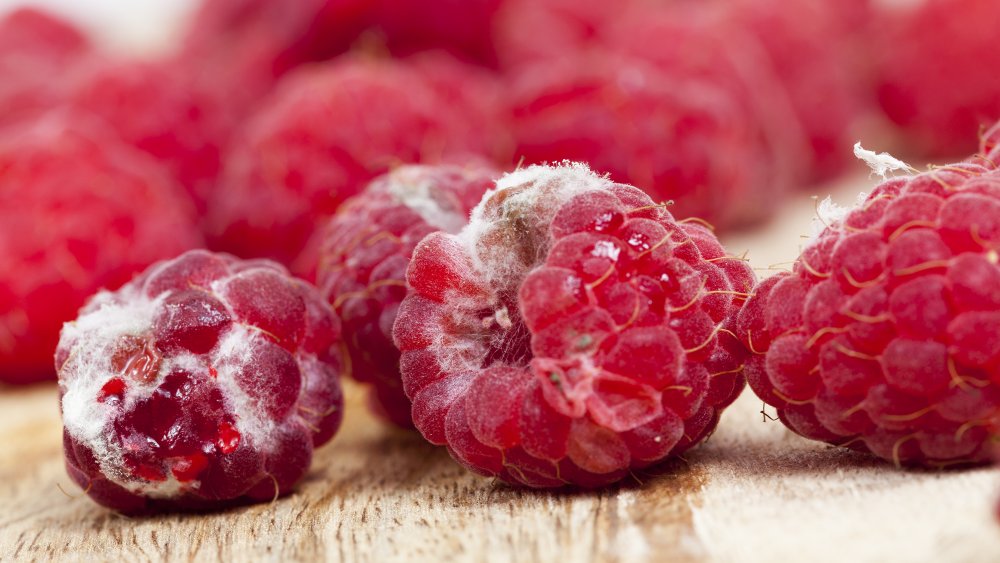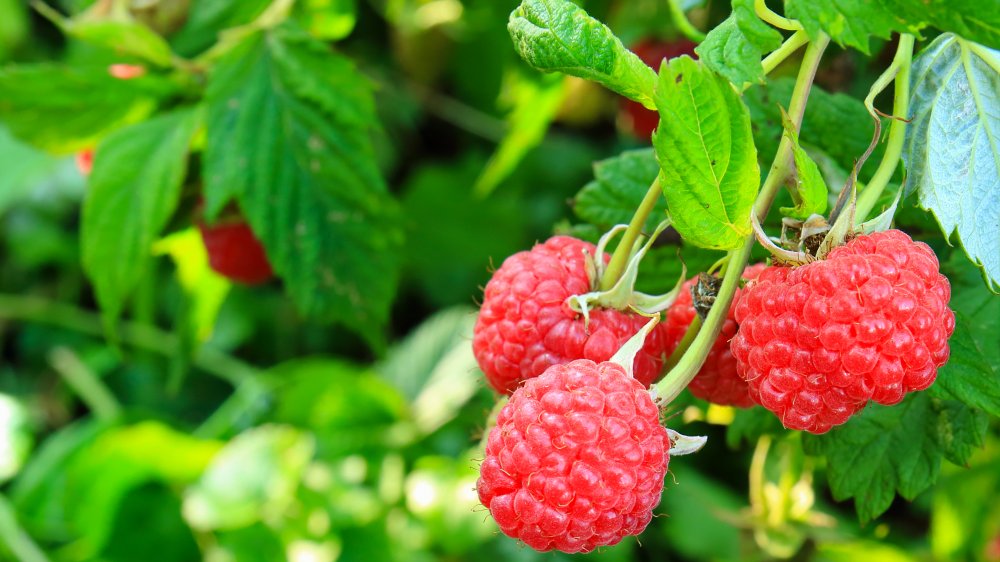The Real Reason Raspberries Spoil So Quickly
A new survey reveals that Americans waste $10 worth of fruit weekly due to spoilage or loss of interest in it. Most of us purchase fruit with every intention of eating it, especially when you consider a superfood like raspberries. They're arguably more nutritious than strawberries, with their flavonoids and low glycemic index. But, what happens when those gorgeous, plump raspberries begin developing black spots, become mushy, or start growing furry mold? Eek!
One Quora user who self-identifies as a former chef says that berries "carry a mold spore on their canes and therefore rot faster than any other fruit." She also notes that berries, including raspberries, should not be washed until just before use. The University of Connecticut adds to this explanation, stating that moisture is the enemy of the raspberry. A common fungus called Botrytis cinerea thrives on moist raspberries, and one spore can quickly grow to 60,000 on one unsuspecting berry.
How to slow the spoilage of raspberries
Now that you know why raspberries spoil, let's discuss how to slow it down. If you prefer fresh raspberries, try storing them in the refrigerator, unwashed, on a dry paper towel to absorb the moisture. Remember, moisture is the enemy, here. If you find that your raspberries are regularly spoiling, because you can't eat them fast enough, frozen raspberries may be your best option (via the University of Connecticut).
What if you accidentally eat one or two of those moldy raspberries? Sounds awful, right? It probably tastes as bad as it sounds, but there's no reason to call the poison control center, according to Eat This, Not That. While you should always toss out moldy bread, yogurt, or meat, according to Shape, experts agree that unless you're elderly or immunosuppressed, eating a bit of moldy fruit is most likely harmless. Let's not make it a habit though, okay?

